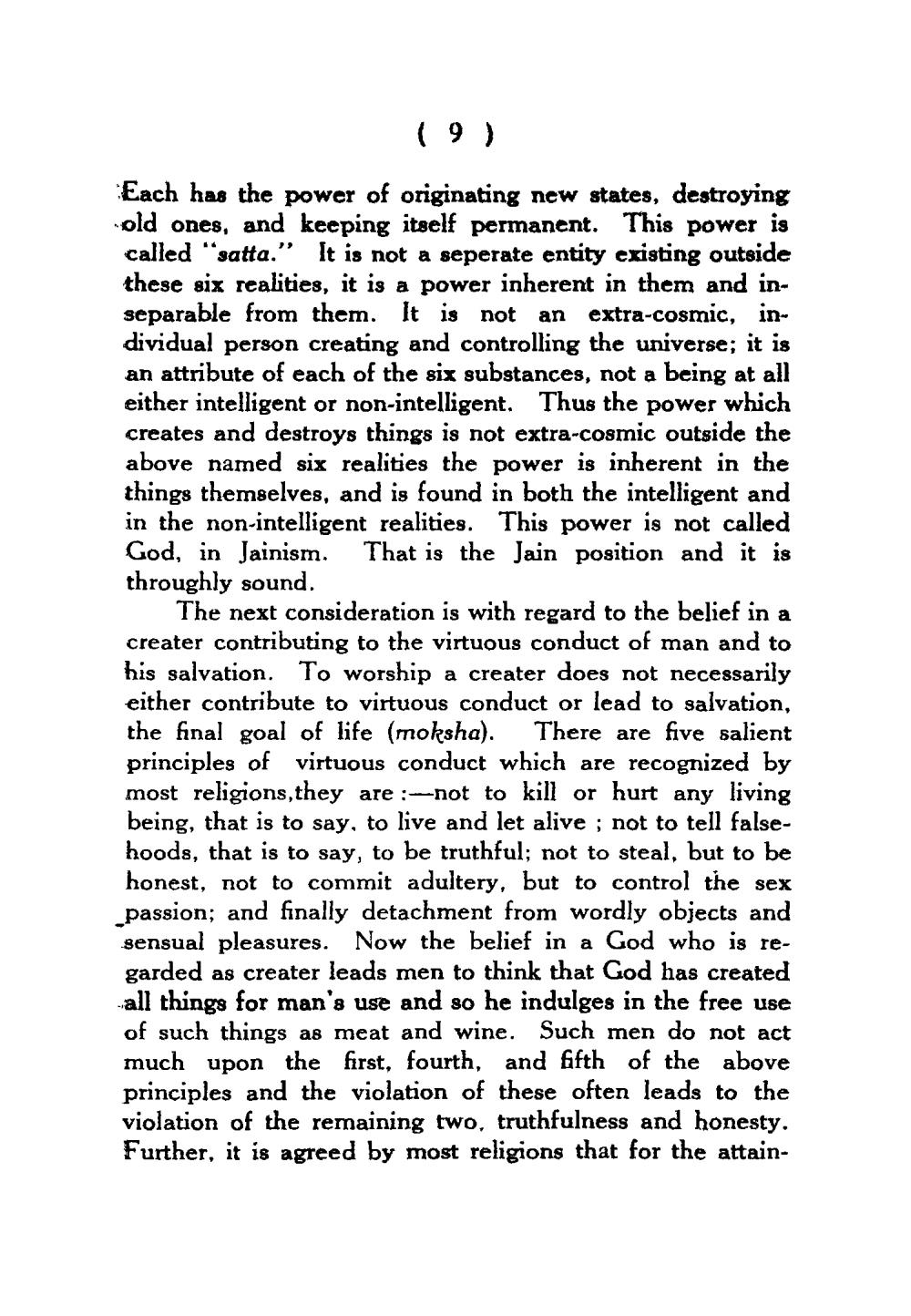________________
(9)
Each has the power of originating new states, destroying -old ones, and keeping itself permanent. This power is called "satta.” It is not a seperate entity existing outside these six realities, it is a power inherent in them and inseparable from them. It is not an extra-cosmic, individual person creating and controlling the universe; it is an attribute of each of the six substances, not a being at all either intelligent or non-intelligent. Thus the power which creates and destroys things is not extra-cosmic outside the above named six realities the power is inherent in the things themselves, and is found in both the intelligent and in the non-intelligent realities. This power is not called God, in Jainism. That is the Jain position and it is throughly sound.
The next consideration is with regard to the belief in a creater contributing to the virtuous conduct of man and to his salvation. To worship a creater does not necessarily either contribute to virtuous conduct or lead to salvation, the final goal of life (moksha). There are five salient principles of virtuous conduct which are recognized by most religions, they are :-not to kill or hurt any living being, that is to say, to live and let alive ; not to tell falsehoods, that is to say, to be truthful; not to steal, but to be honest, not to commit adultery, but to control the sex passion; and finally detachment from wordly objects and sensual pleasures. Now the belief in a God who is regarded as creater leads men to think that God has created all things for man's use and so he indulges in the free use of such things as meat and wine. Such men do not act much upon the first, fourth, and fifth of the above principles and the violation of these often leads to the violation of the remaining two, truthfulness and honesty. Further, it is agreed by most religions that for the attain




